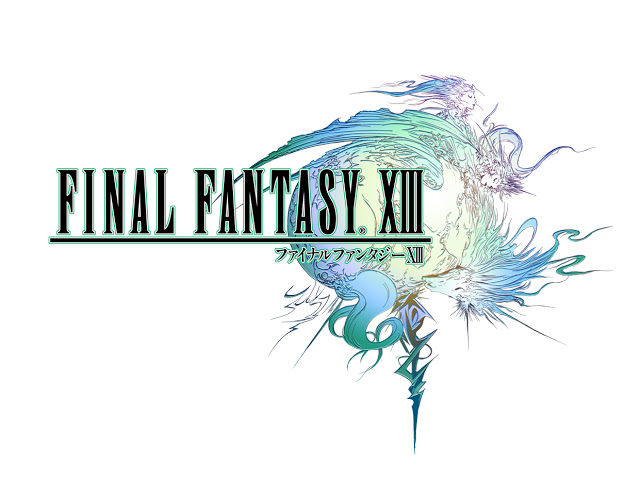This post has not been edited by the GamesBeat staff. Opinions by GamesBeat community writers do not necessarily reflect those of the staff.
The White Noise of Relentless Pacing

As I’m writing this, I am about 25 hours deep into Final Fantasy XIII. I’ve just hit the third disc on the Xbox 360 version and I’m, presumably, near the fabled tipping point where the game “gets good”. Thanks to the way the game is structured, though, I feel like I’m still playing an incredibly long introductory sequence; as if I have yet to reach the start of the game proper.
That’s not to say I haven’t been enjoying the game so far. Final Fantasy XIII is beautiful, badly compressed cut-scenes notwithstanding, and it has a truly amazing, subtle and intricate combat system. I don’t regret my time invested, but I have been thinking a lot about why it has failed to engage me to the level I experienced in past Final Fantasy titles.
Many reviewers and fans have complained about the lack of an over-world, or even towns to visit in the game, but few have articulated exactly why that is a problem aside from its deviation from established tropes. Square Enix have done everything in their power to streamline the experience to maintain a constant stream of action, while minimizing any down time.
Call of Duty: Black Ops suffers from a similar problem. While one might say that the way Final Fantasy XIII shunts the player down an endless series of corridors with a focus on pure combat is very much an attempt to transform the RPG into something akin to Call of Duty, Black Ops is itself guilty of taking its own formula to the logical extreme and delivering a final game that suffers for it.
The problem is one of pacing. Efforts to provide a “thrill a minute” and “wall to wall action” have resulted in games like Final Fantasy XIII and Black Ops where every so called extraneous element has been slashed. That may sound good on paper or in a board room, but it doesn’t actually produce better games.
In the case of Final Fantasy XIII, this means the elimination of series staples like an over-world to explore, towns to investigate and item shops to visit. All shopping is done through the save points scattered every few feet in each level. There is also a complete dearth of exploration or agency for much of the game. The narrative leads you by the nose down a path you cannot deviate from. The only activities you get to participate in are fighting, watching cut-scenes and buying skills and upgrading weapons through a series of in game menus.
The problem, exacerbated by the narrative’s in medias res storytelling, is that you are robbed of any kind of context for the action in the game. You don’t get a sense of the geography and how different locations relate to one another. You never get to develop any affection for the community you are ostensibly trying to protect. So divorced from the greater world, it’s difficult to care enough to engage with the fiction that is being presented.
For Call of Duty: Black Ops, Treyarch devised a very clever story telling device, the interrogation of your character leading into a series of flashbacks, to justify including nothing but high octane set piece after high octane set piece. Freed of the need to frame the action within the structure of each mission, you instead flit in and out of your own “memory” at the drop of the hat. What results is a game where the action isn’t non-stop in a hyperbolic sense, but quite literally so.
It’s very easy to get battle fatigue in a game like that. When the explosions and gunfire never stop it ceases to be thrilling. Instead it becomes white noise where no moment stands out. Action games have often been compared to roller coasters, but Black Ops is like a ride that is all down hill. What makes a roller coaster interesting is the peaks and valleys, the anticipation of the rising action and relief when the track levels out.

Black Ops has pared down the formula so far that its levels do not contain those important elements of pacing. The game is largely devoid of dramatic shape and dynamic range. It fails to sufficiently build tension and robs you of the opportunity to celebrate your victories. The extended, nerve-rattling bombast bores you with its sameness, and then Sam Worthington starts screaming again.
Where does the impulse to move in this direction originate? As mentioned above, the idea of cutting the fat and playing to your perceived strengths, while simultaneously streamlining the whole game to make it more accessible to new players, probably sounds really good on a design document or during a pitch to the executives in charge.
Developers are also seem deathly afraid of being told their game “drags in parts” or “meanders” in reviews or from players. In the age of Metacritic, most publishers can ill afford even a small hit to their average review scores, and something passing for an Internet consensus among gamers, ill-informed though it may be, spreads like wildfire through Twitter, Facebook and the big forums.
 The role of focus testing and community relations may also contribute to this design emphasis. Sadly, what may demo well over the short term may not always be what is best over a long haul. It’s the same mistake Coca-Cola made when they developed New Coke. While preferred over Pepsi in blind taste tests, it turns out it was too sweet for most people to drink by the bottle or can.
The role of focus testing and community relations may also contribute to this design emphasis. Sadly, what may demo well over the short term may not always be what is best over a long haul. It’s the same mistake Coca-Cola made when they developed New Coke. While preferred over Pepsi in blind taste tests, it turns out it was too sweet for most people to drink by the bottle or can.
Coca-Cola’s researches must have been very frustrated to learn that the very thing their tests with the public said improved the new formula was exactly what made it less palatable. Unfortunately, people aren’t always the best at articulating what it is they actually enjoy and even worse at identifying what might be missing from the equation. This can be true of not only lay people, but fans and professional critics. There is also a very real danger as a developer in taking terms like “nonstop” or “wall to wall” action too literally.
Curiously, while developers like Treyarch and Square Enix are filing their game designs down to a sharpened point in this fashion, other developers are doing the exact opposite. Gears of War creator Cliff Bleszinski has gone so far as to claim “future of shooters is RPGs”, pointing to examples like Borderlands, Mass Effect and the upcoming Deus Ex: Human Evolution.
These games, and others like them, substitute a tightly controlled, heavily scripted, totally linear narrative for a player directed, sprawling and more personalized game. The idea of retaining well worn shooter gameplay and marrying that to a RPG questing structure with rich character development and an in game economy seems so obvious in hindsight. This is great for further engaging the player and creating a sense of ownership over their character and events in the game, and yet both Final Fantasy XIII and Black Ops are moving in the opposite direction.
Certainly, Square Enix must be aware of the criticisms leveled Final Fantasy XIII by both the enthusiast press and gamers, but it’s too early to see how they’ll respond in future games, including the just announced Final Fantasy XIII-2. I’m more concerned about how Treyarch will evaluate their own performance with Black Ops. Obviously, any issues I’ve identified with the game have not negatively impacted sales.
To be clear, I’m not saying either game is bad, but I can’t ignore the particular missteps in how each was paced. In both cases the design philosophy employed leaves me very worried about future installments in each franchise.
Have Treyarch and Square Enix completely lost the plot? I’m hopeful for improvement, but let me know what you think the future of Final Fantasy and Call of Duty will bring in the comments.
